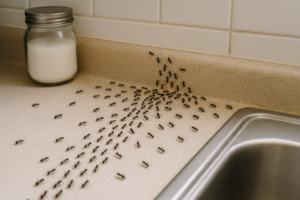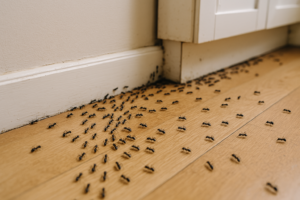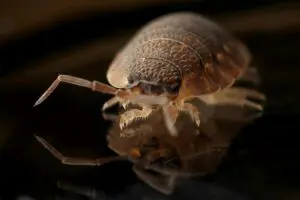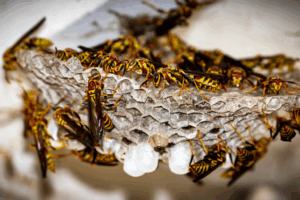

Preventing Pest Infestations On Your Rental Properties
As a property manager, you strive to provide your renters with a space where they can feel at home. Needless to say, pests make any property much less comfortable- but worry not! Preventing pest infestations is easier than it may seem. Read on to learn the steps toward a pest-free rental property.
Common Pests To Look Out For
Generally, the most common pests across the U.S. are ants, cockroaches, bed bugs, rodents, termites, fleas, ticks, silverfish, flies, and beetles. However, a property can be more susceptible to certain kinds of infestations depending on its geographical location and surrounding environment. For instance, pests like rodents are more common in northern states while pests like termites are more common in the south. Similarly, an apartment on a city block may be more prone to cockroaches and bed bugs while a single-family house in the woods is more likely to suffer a mosquito or termite infestation.
In order to determine which pests your property may be most susceptible to, take these seven factors into consideration:
- Is your property in a northern or southern state?
- Is your property in an urban or rural area?
- Does your property contain a single- or multi-unit building?
- Is your property near any high risk areas? (i.e. ponds and swamps, sewers, wooded areas, transfer stations and dumps, etc.)
- Are the buildings and building materials on your property old or new?
- What kinds of building materials were used on your property?
- Have any pests previously infested your property? (Certain pests are more likely than others to return after being eradicated- for instance, cockroaches.)
Preventing Pests On Rental Properties
Here’s how to prevent infestations of all kinds on your rental properties:
Educate Tenants
Since your tenants are the ones who are actually present on your property on a daily basis, they are the first line of defense against pests. It is important to educate them on their responsibilities regarding pest prevention, and be sure to inform them of the situations in which they are responsible for the cost of extermination procedures. Landlords are almost always responsible for pest control, however if the renters are indisputably the cause of an infestation, they are responsible for covering the cost. Renters can avoid causing infestations by employing the following steps:
- Properly store food and drinks. All non-refrigerated food products (including pet food) should be kept in tightly sealed containers that are made of a hard material like metal, glass, or hard plastic. Ideally, fruits and vegetables should not be left out on the counter. If they are, they should be used promptly or disposed of as soon as they are overripe. Alcohol bottles, sugary drinks, and vinegar bottles should always be tightly sealed when not in use, and the outside of the bottles should be cleaned if any spills occur.
- Empty the garbage often. Pests are attracted to rotting food waste, so garbage cans should be emptied either daily or every other day. Indoor garbage cans should have tight-fitting lids. Outdoor garbage receptacles should also have tight-fitting lids as well as drainage holes in the bottom. Encourage renters to be diligent about remembering garbage pick-up days. If your city does not provide garbage pick-up, ask your renters to bring their garbage to the local transfer station weekly.
- Clean regularly. This step is important for three reasons. First, pests are attracted to any food source. They will flock to food spills and dirty dishes that are not cleaned up in a timely manner, as well as areas where food residue tends to build up like stovetops, ovens, microwaves, and refrigerators. Second, pests love clutter because it gives them plenty of places to hide and build nests. All areas of the property should be kept as neat and organized as possible. This means keeping up with laundry piles, organizing and not overcrowding storage areas, and eliminating outdoor leaf and debris piles. Third, certain pests are attracted to dust, dirt, grime, and cobwebs, so eliminating these attractants is imperative.
- Properly store items. Pests like carpet beetles and clothes moths like to chew on stored fabrics, and other pests like silverfish and cockroaches like to eat paper products. Any such items that are in storage should be kept in tightly-sealed storage boxes that are made of wood, metal, or hard plastic. Cardboard boxes should be avoided as much as possible as they can be easily chewed through. Placing deterrents like dryer sheets or moth balls inside storage boxes can further prevent pests.
- Check packages and second-hand items for pests. Many pests have been known to hitchhike into homes and businesses on cardboard packages, second-hand furniture, and second-hand clothing. Ask tenants to inspect packages and their contents for any pests, and ask them to thoroughly clean any second-hand items.
- Report all property maintenance issues. Property damages like cracks in walls or missing shingles provide entrances for pests to invade. Leaks, clogs, and holes or divots in the ground can all lead to moisture buildup and rotting wood, which will attract many kinds of pests. Ask tenants to report any property damages or maintenance issues they come across right away so you can repair the damages before pests show up. In addition, ask tenants to regularly empty any outdoor containers that have collected rainwater so pests like mosquitoes cannot use the water to lay eggs.
- Report signs of pest activity. The longer pests are allowed to exist on a property, the more likely an infestation becomes. Ask your tenants to immediately report any signs of pest activity so you can promptly schedule an extermination.
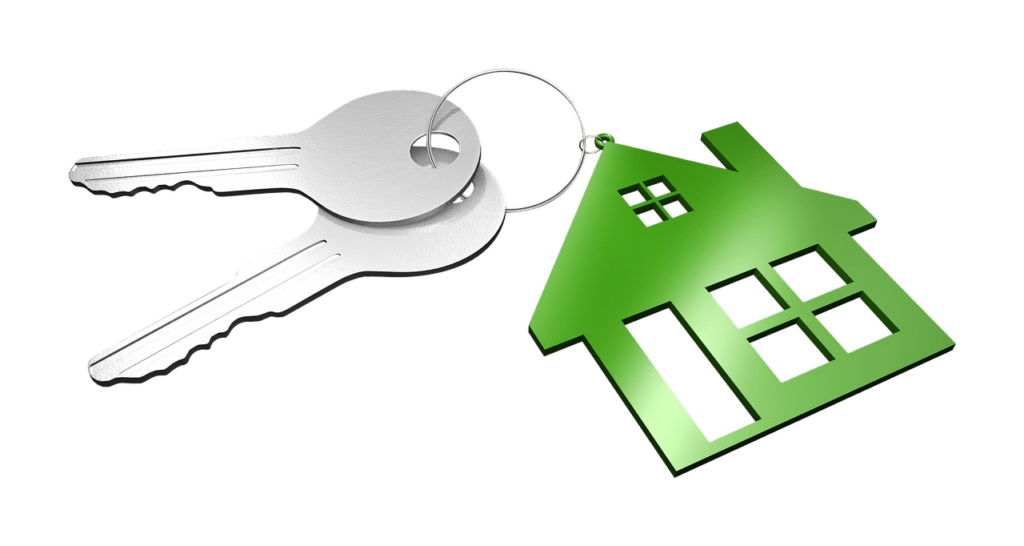
Take Precautions Against Pests
Keeping up with property maintenance is an important step in preventing pests.
- Seal cracks in the walls and foundation
- Replace broken or missing shingles
- Promptly repair leaks and clogs
- Provide dehumidifiers for particularly damp indoor areas like basements
- Keep vegetation and grass trimmed
- Remove leaf and debris piles
- Fill in holes in the ground
- Clean gutters yearly
- Keep firewood piles roughly ten feet from the outside of the building
- If your property has a pond or ornamental pool, aerate it or stock it with fish
- Swimming pools should be cleaned regularly and treated to prevent bacteria and algae growth
- Finally, consider landscaping with pest-repelling plants like citronella, lavender, basil, and mint
Promptly Call For Extermination
When a tenant reports signs of pest activity, you need to call the exterminator within 1 to 2 days at the most. If the property does not receive treatment within an acceptable amount of time, the tenant may legally withhold rent or break the lease agreement.
Visit Your Properties Regularly
By regularly visiting your properties, you can ensure that the property maintenance you are responsible for is up to par. You can also verify that your tenants are practicing proper pest prevention. Every so often, even if no pests are present, you should walk through your properties with your pest control expert so they can help to identify potential risk factors or budding infestations.
Have A Relationship With A Pest Control Expert
As a property manager, you are responsible for providing a pest-free property to your renters. The best way to avoid infestations is by scheduling regular preventative pest control treatments for all of your properties, which means you should have a working relationship with a pest control expert. Do some research to find the best pest control expert for your properties, and then talk to both the expert and your tenants to plan a treatment schedule. Having an existing relationship with a pest control company also makes the extermination process smoother and simpler if an infestation does occur, since you can schedule an immediate treatment.
A pest-free property is one you can be proud to rent out. If you’re looking for a pest control expert to protect your rental properties, take a look at our Property Management Pest Control plans or call Excel today to set up your free inspection.




